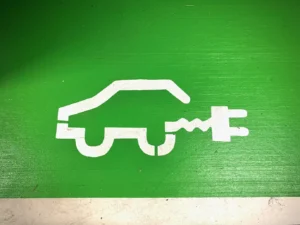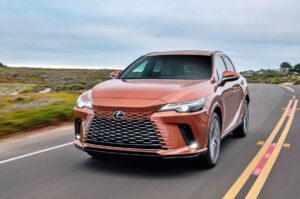The electric vehicle (EV) market faced a significant jolt as Tesla, co-founded by Elon Musk, reported disappointing third-quarter results, missing estimates for the first time since the second quarter of 2019. The repercussions of this disappointing performance were felt across the industry, particularly among Chinese EV manufacturers.

Getty Images
On Thursday morning, the Hong Kong-listed shares of Chinese EV makers, including BYD and Xpeng, fell by 2.18% and 8.76%, respectively. Li Auto saw a slide of 3.14%, while Nio and Geely dropped by 8.36% and 3.97%, respectively, in Hong Kong. Tesla’s influence on the global EV market is undeniable, and its performance has a ripple effect on other EV manufacturers, especially those in China, one of the world’s largest EV markets.
read more: Tesla Slashes Prices on Model 3 & Model Y in the U.S. Amid Lower-than-Expected Q3 Deliveries
During Tesla’s earnings call on Wednesday, Elon Musk expressed concerns about the high interest rate environment. He warned that the Tesla Cybertruck, the company’s battery-electric full-size pickup truck model, would not deliver significant positive cash flow for 12 to 18 months after production begins. Musk stated that the company is working to reduce the prices of its cars in response to high interest rates. He likened this endeavor to “Game of Thrones” and described it as a challenging undertaking with minimal margins.
One of the key concerns raised by Musk was the impact of the current high-interest rate environment. Higher interest rates can significantly increase the cost of financing a vehicle. If interest rates continue to rise, it would make it much harder for consumers to purchase cars, posing a challenge to the entire automotive industry.
read more: Toyota’s Land Hopper: A Glimpse into the Future of Compact Off-Road SUVs
Tesla’s shares closed 4.78% lower on Wednesday following its earnings report. This decline also affected other U.S.-based EV rivals, including Lucid and Rivian, which both fell more than 9% on the same day. Lucid’s stock had already declined a day earlier after it reported third-quarter EV deliveries that disappointed investors and analysts.
In the first half of this year, BYD was recognized as the world’s leading EV manufacturer, contributing to 21% of global EV sales, according to research firm Canalys. Tesla followed closely behind in second place with a 15% market share. German carmaker Volkswagen held third place with a 7% market share. The fierce competition among these players demonstrates the industry’s growth and the race to gain market share.
EV manufacturers are facing intense competition, which has led to a price war to capture market share. Tesla initiated multiple rounds of price cuts over the last few months, especially in China, the largest EV market in the world. Domestic competitors, including BYD, Nio, Li Auto, and Xpeng, also joined Tesla in reducing the starting prices for some of their EV models. This price war is a reflection of the cutthroat competition in the EV market as companies strive to attract consumers with more affordable options.
In conclusion, the disappointing Q3 results from Tesla have sent shockwaves through the EV industry, impacting Chinese EV manufacturers and causing a significant drop in their stock prices. The challenges posed by the current high-interest rate environment and the fierce price competition have made it a tough road ahead for the EV sector. As the industry continues to evolve and adapt, it remains to be seen how these manufacturers will navigate the changing landscape and maintain their competitive edge.



